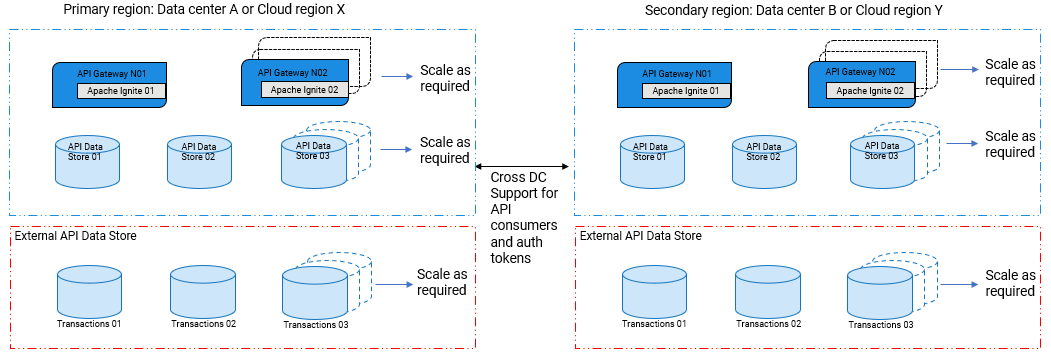High Availability and Fault Tolerance (HAFT) solution
The architecture of HAFT is as follows:
The keypoints about HAFT solution are as follows:

Use this setup, if the RTO is highly demanding, which ranges from few seconds or minutes.

Each data center or the cloud region hosts an independent or isolated cluster of its own.

HAFT solution can be set up using
Hot standby mode or
Active-Active mode. The following table explains the difference between the modes.

For
Hot standby mode. You can have only two data centers. Out of which, only the primary data center serves the client request. Hence, this approach is cost effective compared to Active-Active mode.

For
Active-Active mode. You can have N (Minimum 3) number of data centers and all the data centers serve the client request. Hence, the cost is more compared to Hot standby mode.

API assets should be synchronized across the data center through CI-CD deployments.

Cross-DC federation support offered by API Gateway is limited to API consumers and auth tokens.

API transactions are local to the cluster where the traffic is served and not aggregated. For aggregated transactions, use a centralized API Data Store.

